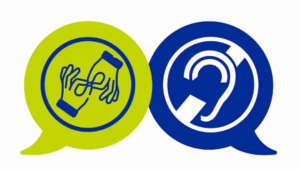Interpreting is a career in which it’s vital to prepare with off-the-job study hours. Alongside learning terminology, organizing assignments, and professional training seminars, the best preparation is practice. Interpreting is best learned through doing and though out-loud practice may seem awkward at first, it’s an invaluable resource. Learning how to not only practice but practice effectively is a skill that will carry you through your career. But where to start? What are the benefits of dedicated practice hours?

The Importance of Practice
Practice is the most useful form of assignment preparation possible for an interpreter, no matter your field. Having the fundamentals of proper terminology in both of your working languages is but a gateway to successful application. Applying your skills is a different matter. Before starting a career as an interpreter (and while in the beginning stages of honing your skillset) you must practice. Reading interpreting theory is an excellent launching point, but it must only be a complement rather than a substitute.
As you give yourself more opportunities to explore your skills, you’ll find a significant change in your interpreting style. You’ll develop a more natural flow, contributing to the back-and-forth necessary for proper interpreting. You’ll feel more confident in your work, allowing procedure to become second nature. When everything comes together, a certain magic happens: the interpreter seems to disappear in the session. The parties for whom you’re interpreting will truly converse with each other as though they didn’t need a language conduit. An experienced interpreter finds that rhythm instinctively; a new interpreter learns it through practice.
Out-loud practice simulates interpreting assignments in everyday life, giving you more experience to advance your career. Your clients and non-English speakers will reap the benefits of a better-trained interpreter and your workload will reflect that. As you approach your first self-practice session, it may seem daunting or counter-intuitive. It’s odd, practicing interpreting skills outside of a session, especially in public. However, it’s the most important help you can give yourself as you prepare to start interpreting.
Tips for self-study
We’ve covered why interpreting practice is important—our next topic is “how.” How to start? Where to start? We’ve compiled some tips and tricks we use to train our Global Arena interpreters and aid in their self-study sessions.
-
Netflix or Video Replay:
- One of the easiest ways to self-practice as an interpreter is to use a video streaming platform. Any show you’d like to watch is useful; medical and legal shows are especially so. Watch the program and interpret line by line and then paragraph by paragraph. Take notes when necessary—this is an excellent time to practice that skill, too. Pause the video to interpret into your target language, then rewind to be sure that you managed to capture everything. This form of self-practice is easy to accomplish on the bus or otherwise in public as you CAN do it silently. However, it’s most effective when you interpret out loud as this gives a more authentic experience. Another advantage to video replay practice is that you can do it alone, whenever it’s most convenient.
-
Family and Friend Conversations:
- Let your friends and family know that you’re studying to be an interpreter and that they can help! Interpret conversations between friends and family members. It’s especially helpful if you have people who speak both English and the language with which you’ll be working. This can be counter-intuitive—it’s quite strange to spend your dinner table conversations interpreting—but it’s highly effective. Interpreting for live conversations is the closest you’ll get to mimicking real interpreting conditions. Don’t be shy! Let those around you help you become the best interpreter you can.
-
Narrate your Day:
- Narrating your day is more a form of language practice than interpreting practice, but still applicable. To use this method, simply say out loud what you’re doing as you go about your day. Interpret each phrase so everything you say is in both languages. This is especially useful as the words we fumble as interpreters are often the “easiest,” most basic words. When a word is so basic you don’t think about it, you’re not prepared to interpret it. Elbow, Shirt, Chair, Table, Socks, Pot, Pan, Pencil, Computer—interpret the mundane words we use every day, too. Interpreting isn’t only about specialized terminology; it’s about being able to call up any word instinctively. This form of practice also helps you get used to repeating the same phrase twice: useful for interjecting.
-
Sight Translation:
- Our last tip isn’t strictly for interpreting but regards a skill all interpreters must have: sight translation. Interpreters are often asked to sight-translate short documents, brochures, and forms. The easiest way to practice sight translation is to use a book and sight-translate each line. You can also look up medical forms and brochures online and interpret their text too. Be sure to sight-translate out loud for the best result. Sight translation is a comparatively rare interpreting need, but it’s necessary to prepare yourself. It’s always better to be over-prepared than overwhelmed.
Global Arena’s 16-Hour Interpreter Training Program
Interpreting self-study is vital but the very best practice comes from working with peers in a safe environment. Global Arena’s 16-hour interpreting program offers just that. We designed our program to give a firm foundation for new interpreters just starting in the industry. The course is discussion and activity-based: plenty of opportunity for practice and collaboration. Experienced interpreters also benefit from brushing up on their skills and industry knowledge. The course takes place over zoom, on four consecutive days, from 8:30 am- 12:30 PM EST. Participants receive a welcome packet with reference materials, including medical and legal glossaries. You’ll also receive a certificate of completion upon passing exam score: useful for interpreting applications and resume-building




